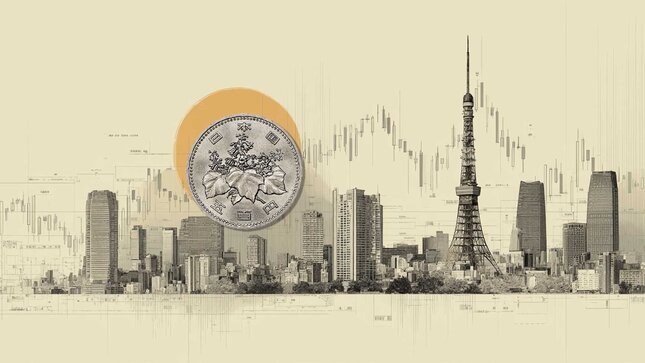Last week I wrote about one way to “hedge,” or reduce the risk of a particular kind of option trade by adding another option. Let’s look into this idea a little further.
First of all, the term “hedging,” as in “hedging one’s bets,” has been in use since at least the 1600′s in England, according to this source: http://www.phrases.org.uk/meanings/hedge-your-bets.html
It derives from the idea of actually planting a hedge, to prevent loss due to escaping livestock. I also can’t resist including this excerpt, which explains the term “stock”:
“Curiously, the original examples of another financial device … that is, stocks, were literally made from material that was taken from hedges. In the 17th century, the tally that recorded a payment to the English Exchequer was a rough stick of about an inch in diameter, split along its length. One half, the stock, was given as a receipt to the person making the payment; the other half, the counterfoil, was kept by the Exchequer. Ownership of payments that were made jointly by a group were shared among the members of so-called joint stock companies, hence stocks and shares. ”
In financial terms, a hedge is created by adding another position to the original position, to reduce its risk.
Now let’s look at the idea of a “market maker.”
In general, a market maker is someone in the business of buying and selling the same product. He is a middleman – not a producer of the product, nor a consumer of it. He is willing to buy from all comers at a certain (wholesale) price, and to sell to all comers at a higher (retail) price.
In one of my college economics classes, the watermelon market was used as an example of a market free from monopolistic influence. There are so many watermelon vendors that no one of them can affect the market price. And there are so many buyers that no one of them alone can affect the price either.
Some years after college, when I owned an IT consulting company, I had a client who coincidentally was a market maker in watermelons. That company posted every day the prices that they would pay for watermelons of each type and grade. Anybody who showed up at the loading dock with a truckload of watermelons could sell them to the company at the posted price.
Meanwhile, the company’s salespeople were on the phones talking to grocery chains and restaurants, selling them watermelons at higher prices. And if a truck showed up at the dock and wanted a load of watermelons, they could buy them at the posted sale prices. The watermelon man had a risk of a large movement in the price of watermelons that might happen while he held them in inventory. His main protection was that he held very little inventory at any one time. (One does not buy and hold a watermelon for the long term).
Yikes, what does this have to do with trading or options?
Well, in the option world, there are market makers too. These are specialized traders whose business is to buy and sell the options of a particular stock, or group of stocks. The option market makers have a tool available to them that my watermelon-selling client did not. Option market makers can hedge their “inventory” in a particular way, and that is by simultaneously holding a position in the stock itself.
Every time an option market maker sells a call option to a trader, he has received a finite amount of money for something that has potentially unlimited profit for the customer. Whatever profit the customer makes, however, comes directly out of the pocket of the market maker.
And whenever the market maker lets a customer sell a call option to him, he, the market maker, now owns an instrument with unlimited profit. If the market maker had an equal number of long calls and short calls, his risks and rewards would balance out. His profit would become just the difference between the amounts he received for selling calls at retail, and the amounts that he paid when he bought them at wholesale. The same is true in reverse for put options.
In fact, that is what the market maker wants. He is in business for the sure profits on the wholesale-retail spread. He does not really want to deal with the changes in prices of the products in his “inventory.”
To that end, to be perfectly hedged, the option market maker uses the stock itself to offset the risk on his option positions. Each option position can be translated into an equivalent number of shares of stock. Every time a market maker sells a call to a customer, he buys a number of shares of the underlying stock such that the profits on the stock and the short call exactly offset each other. When he buys a call, he sells stock. When he sells a put, he sells stock, and when he buys a put, he buys stock. At all times, his net stock position equals and offsets his net option position. He does not care what the price of the stock does. The tool that lets the market maker know how many shares of stock are required for each option is the calculation called Delta, which is one of the products of the option pricing model, or formula.
Having this model, and therefore a way to hedge away a market maker’s price risk, is a big part of what makes it attractive for people to go into that business. For those of us who make some or all of our income from trading options, that is a good thing – without market makers, there could be no option market. Thanks to that, we have the huge variety of option opportunities that exist today – including creating hedges of our own.
Next time, more ways to do just that.
This content is intended to provide educational information only. This information should not be construed as individual or customized legal, tax, financial or investment services. As each individual's situation is unique, a qualified professional should be consulted before making legal, tax, financial and investment decisions. The educational information provided in this article does not comprise any course or a part of any course that may be used as an educational credit for any certification purpose and will not prepare any User to be accredited for any licenses in any industry and will not prepare any User to get a job. Reproduced by permission from OTAcademy.com click here for Terms of Use: https://www.otacademy.com/about/terms
Editors’ Picks

EUR/USD: US Dollar to remain pressured until uncertainty fog dissipates Premium
The EUR/USD pair lost additional ground in the first week of February, settling at around 1.1820. The reversal lost momentum after the pair peaked at 1.2082 in January, its highest since mid-2021.

Gold: Volatility persists in commodity space Premium
After losing more than 8% to end the previous week, Gold (XAU/USD) remained under heavy selling pressure on Monday and dropped toward $4,400. Although XAU/USD staged a decisive rebound afterward, it failed to stabilize above $5,000.

GBP/USD: Pound Sterling tests key support ahead of a big week Premium
The Pound Sterling (GBP) changed course against the US Dollar (USD), with GBP/USD giving up nearly 200 pips in a dramatic correction.

Bitcoin: The worst may be behind us
Bitcoin (BTC) price recovers slightly, trading at $65,000 at the time of writing on Friday, after reaching a low of $60,000 during the early Asian trading session. The Crypto King remained under pressure so far this week, posting three consecutive weeks of losses exceeding 30%.

Three scenarios for Japanese Yen ahead of snap election Premium
The latest polls point to a dominant win for the ruling bloc at the upcoming Japanese snap election. The larger Sanae Takaichi’s mandate, the more investors fear faster implementation of tax cuts and spending plans.
RECOMMENDED LESSONS
Making money in forex is easy if you know how the bankers trade!
I’m often mystified in my educational forex articles why so many traders struggle to make consistent money out of forex trading. The answer has more to do with what they don’t know than what they do know. After working in investment banks for 20 years many of which were as a Chief trader its second knowledge how to extract cash out of the market.
5 Forex News Events You Need To Know
In the fast moving world of currency markets where huge moves can seemingly come from nowhere, it is extremely important for new traders to learn about the various economic indicators and forex news events and releases that shape the markets. Indeed, quickly getting a handle on which data to look out for, what it means, and how to trade it can see new traders quickly become far more profitable and sets up the road to long term success.
Top 10 Chart Patterns Every Trader Should Know
Chart patterns are one of the most effective trading tools for a trader. They are pure price-action, and form on the basis of underlying buying and selling pressure. Chart patterns have a proven track-record, and traders use them to identify continuation or reversal signals, to open positions and identify price targets.
7 Ways to Avoid Forex Scams
The forex industry is recently seeing more and more scams. Here are 7 ways to avoid losing your money in such scams: Forex scams are becoming frequent. Michael Greenberg reports on luxurious expenses, including a submarine bought from the money taken from forex traders. Here’s another report of a forex fraud. So, how can we avoid falling in such forex scams?
What Are the 10 Fatal Mistakes Traders Make
Trading is exciting. Trading is hard. Trading is extremely hard. Some say that it takes more than 10,000 hours to master. Others believe that trading is the way to quick riches. They might be both wrong. What is important to know that no matter how experienced you are, mistakes will be part of the trading process.
The challenge: Timing the market and trader psychology
Successful trading often comes down to timing – entering and exiting trades at the right moments. Yet timing the market is notoriously difficult, largely because human psychology can derail even the best plans. Two powerful emotions in particular – fear and greed – tend to drive trading decisions off course.


